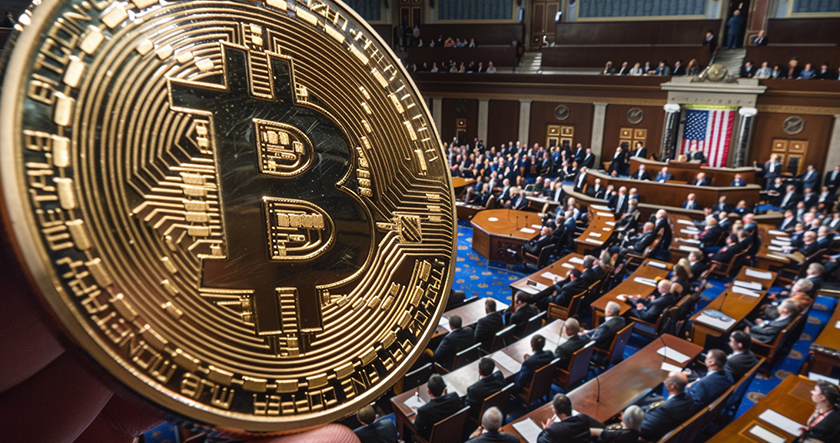While the halls of Congress continue to echo with debates over cryptocurrency regulation, a quieter revolution is unfolding across the United States. State legislatures, from coast to coast, are taking the initiative on crypto, crafting a wave of measures that suggest a growing awareness of the digital asset’s potential – and the need for clear rules of the road.
So far in 2024, more than 30 bills have been passed at the state level, writes Peter Herzog for CoinDesk – already more than double the number that passed in all of last year. State legislatures are talking about cryptocurrency regardless of whether they’re dominated by Republican or Democrats, demonstrating that it has become a truly bipartisan issue.
This flurry of legislative activity highlights a multi-faceted approach. Some states, like Nebraska and Wyoming, are focusing on creating a legal framework that fosters innovation. Nebraska’s UCC clarification removes roadblocks for businesses dealing with digital assets, while Wyoming’s DAO amendments provide a structure for these emerging decentralized organizations.
On the other hand, states like South Dakota are prioritizing consumer protection. Their new money transmitter regulations aim to ensure transparency and accountability for businesses handling virtual currencies, mitigating potential risks for residents.
Some states, such as Oklahoma, are emphasizing the right to crypto self-custody, while others (such as Louisiana) are specifically outlining restrictions for central bank digital currencies (CBDCs). Oftentimes, states are combining language from states with similar policies, integrating bits and pieces that suit their constituents the best. This mix of approaches reflects the nuanced conversation surrounding cryptocurrency – fostering its potential while safeguarding consumers.
State legislatures are generally smaller and more nimble than Congress. This allows them to react faster to the rapidly evolving world of cryptocurrency and pass targeted regulations that address specific issues. It’s a role that not only serves to strengthen individual states when it comes to fostering the crypto industry, but the United States as a whole.
Crypto regulation remains a divisive topic in Congress. Different factions have varying priorities, making it difficult to reach a compromise and pass comprehensive legislation – ultimately slowing down the development of the nation’s cryptocurrency industry. States, meanwhile, can experiment and tailor regulations to their specific needs and demographics.
Of course, there are also downsides to this patchwork approach. Inconsistent regulations across states can create confusion for businesses operating nationally. And there’s no doubt that a unified federal approach is necessary to effectively address issues like money laundering or consumer protection on a national scale.
Traditionally, the U.S. federal system has allowed states to act as “laboratories of democracy,” testing different approaches. Successful state-level regulations could pave the way for future federal legislation by demonstrating workable models. As more and more states create their own crypto rules, we’ll undoubtedly see more progress at the federal level – enough to hopefully put the U.S. back in the running for leadership in the global cryptocurrency industry.







